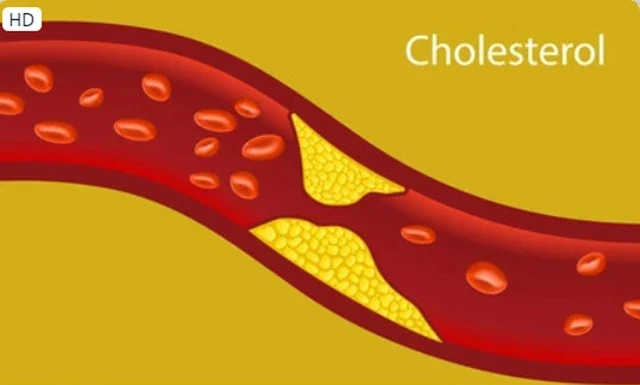According to recommendations, on average, each person should consume about 300 mg of cholesterol per day. And a large egg contains up to 186 mg of cholesterol, according to the health website Health .
Nutritional composition of eggs
Eggs are an easy and nutritious food. They provide protein, healthy fats, and essential vitamins and minerals.

Eggs are easy to prepare and nutritious food.
Egg yolks contain vitamin A, vitamin B12, selenium, and choline. Free-range eggs are nutritious, with high amounts of omega-3 fatty acids, vitamin A, and vitamin E.
Although eggs are high in cholesterol, the cholesterol in eggs does not have many negative health effects. In some people, avoiding eggs may even cause nutritional deficiencies.
How do eggs affect cholesterol levels?
Blood cholesterol includes HDL cholesterol (good cholesterol) and LDL cholesterol (bad cholesterol). The liver is responsible for making blood cholesterol to support several body functions.
However, over time, high blood cholesterol builds up in the arteries, blocking blood flow to and from the heart, increasing the risk of heart disease and stroke.

People with high blood cholesterol levels due to genetics should consult a doctor before eating eggs.
Meanwhile, dietary cholesterol is commonly found in meat, seafood, poultry, eggs, and dairy.
Overall, the fat and cholesterol in eggs will slightly increase LDL and HDL cholesterol, but the amount of increase varies from person to person.
Normally, the body makes enough cholesterol, so you have to limit cholesterol in your diet. However, we cannot separate cholesterol from the fat we eat. Therefore, in recent years, experts have recommended that we consume less saturated fat and trans fat.
Experts recommend eating a healthy diet with a variety of foods such as fruits, vegetables, whole grains, lean proteins and low-fat dairy. A healthy diet can still include eggs but in moderation.
4-5 eggs per week
Most healthy people can eat 1-2 eggs per day along with other foods.
However, people with high cholesterol should eat a maximum of 4-5 eggs per week. In addition, they need to reduce their consumption of saturated fat, trans fat and cholesterol from their diet.
For people with high blood cholesterol levels due to genetics, consult a doctor before eating eggs.
Source link



![[Photo] Overcoming all difficulties, speeding up construction progress of Hoa Binh Hydropower Plant Expansion Project](https://vstatic.vietnam.vn/vietnam/resource/IMAGE/2025/4/12/bff04b551e98484c84d74c8faa3526e0)


![[Photo] Closing of the 11th Conference of the 13th Central Committee of the Communist Party of Vietnam](https://vstatic.vietnam.vn/vietnam/resource/IMAGE/2025/4/12/114b57fe6e9b4814a5ddfacf6dfe5b7f)










![[Video] First time in Vietnam: Successful implantation of 3rd generation partial artificial heart](https://vstatic.vietnam.vn/vietnam/resource/IMAGE/2025/4/12/8817412224094c68ba2c744b7bd5cfea)












































































Comment (0)